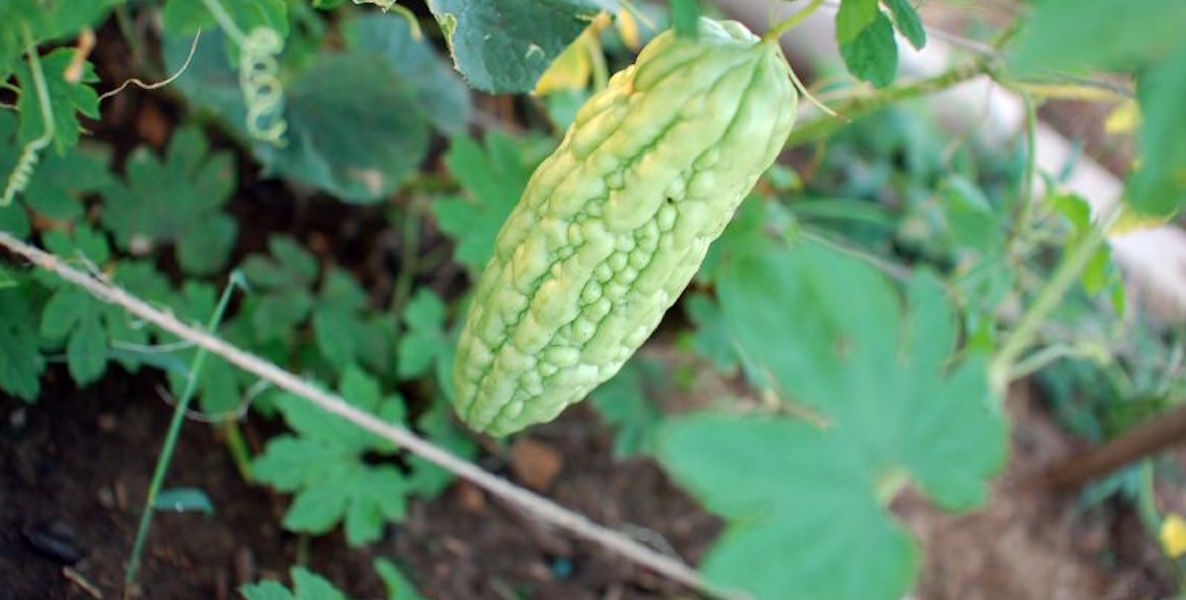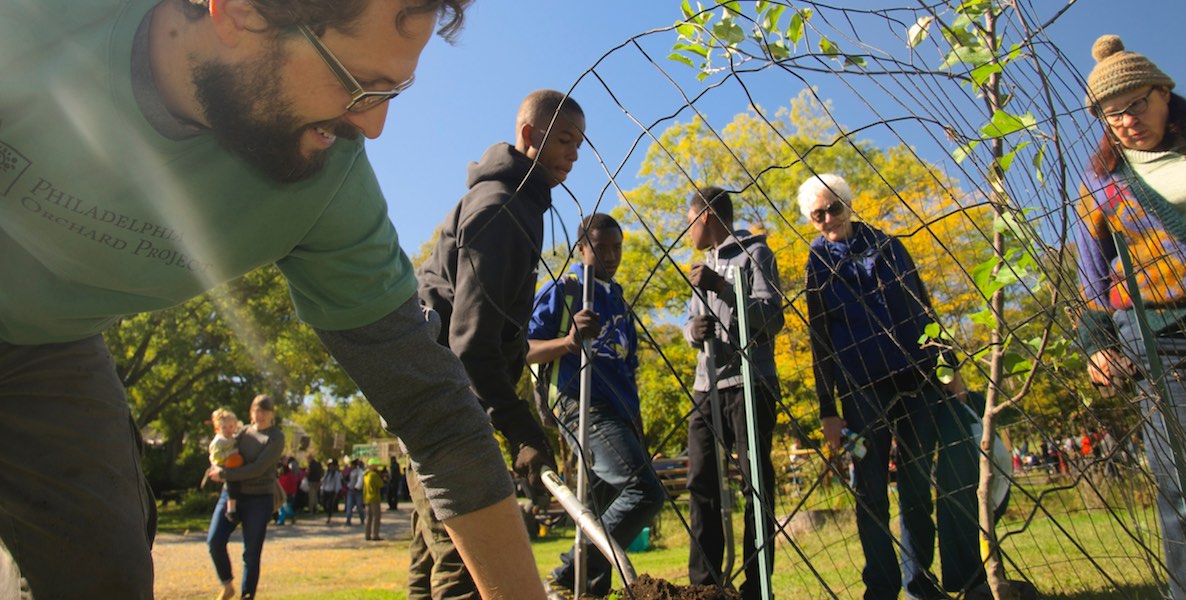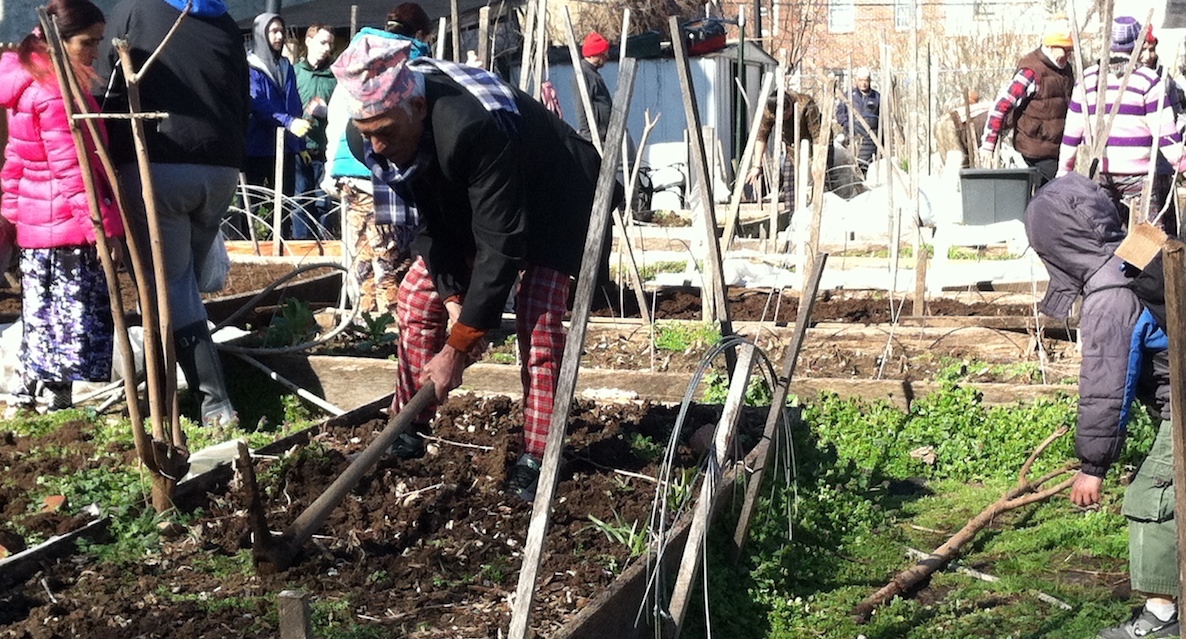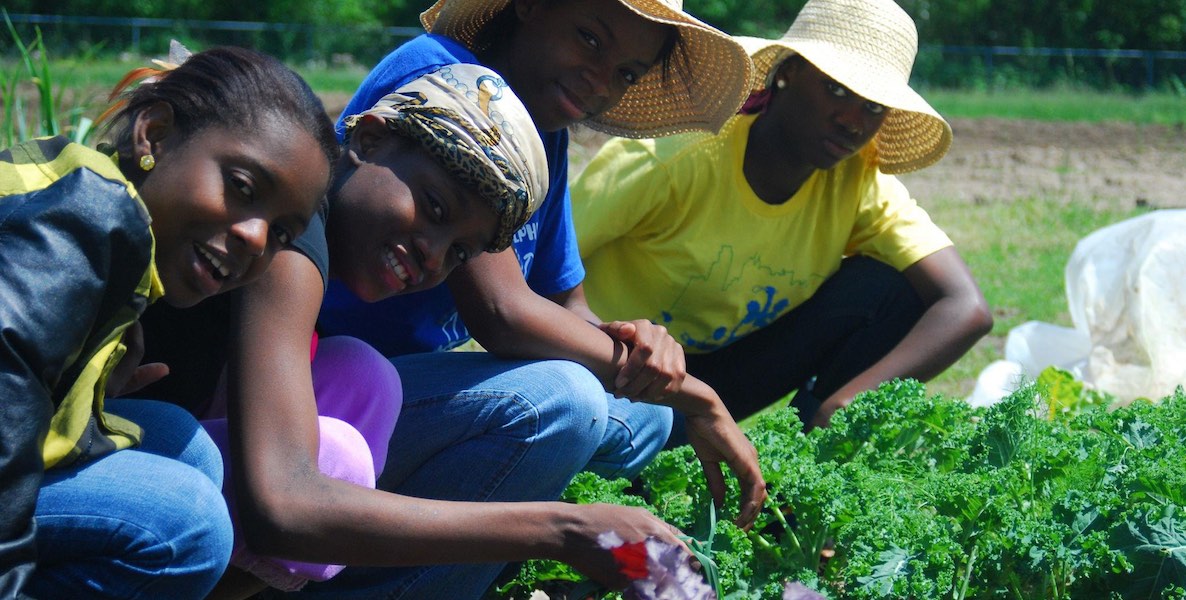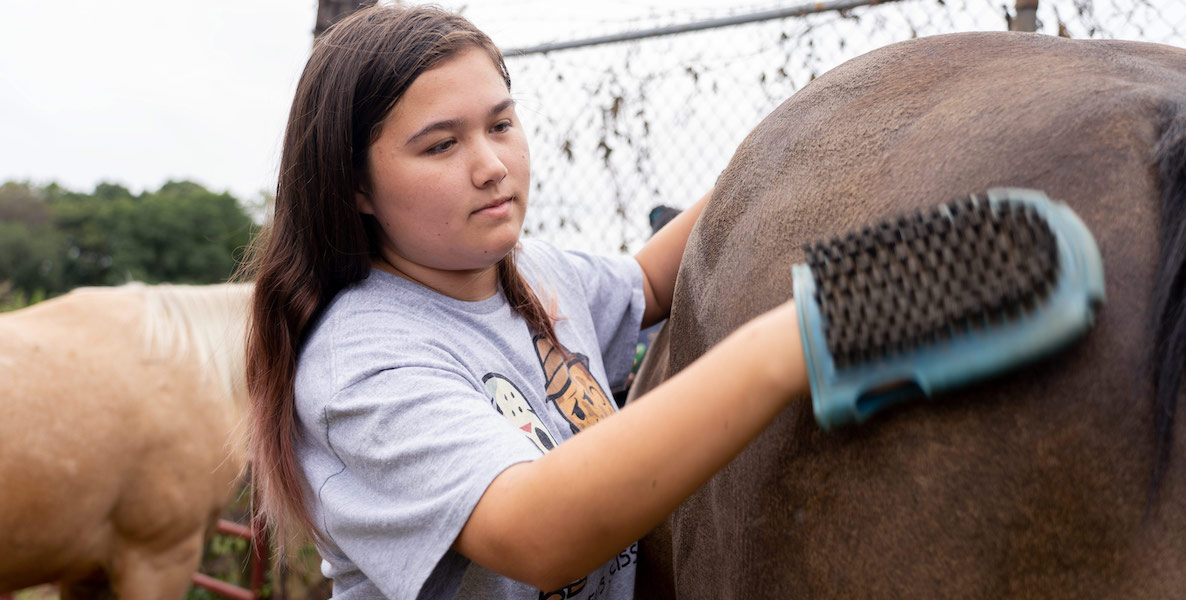It’s a Friday morning at Walter B. Saul High School of Agricultural Sciences in Roxborough, and outside one of the campus barns, a dozen juniors pair up with a horse or donkey. The school year has just begun and they’re learning to brush and feed them, and clean their hooves. “The students are trying to build a relationship with them,” says their teacher, Jane Arbasak.

Prefer the audio version of this story? Listen to this article in CitizenCast below:

One girl seems a bit skittish around her donkey. “I think you should just get over it,” Arbasak tells her. “You’re going to have to get used to him.” Then, in a moment that is a reminder that Saul students are, after all, teenagers, she scolds another boy for having his phone out. “Esteban! The last time I checked the horses weren’t interested in looking at phones!”
“Sorry, sorry” he says, and goes back to brushing his horse.
Meanwhile, over in the greenhouse, another group of juniors are given an orientation by their horticulture teacher, Jesse Lepkowski. “What are some of the weekly responsibilities of the greenhouse?” he asks.
“Fertilizing?” says one student.
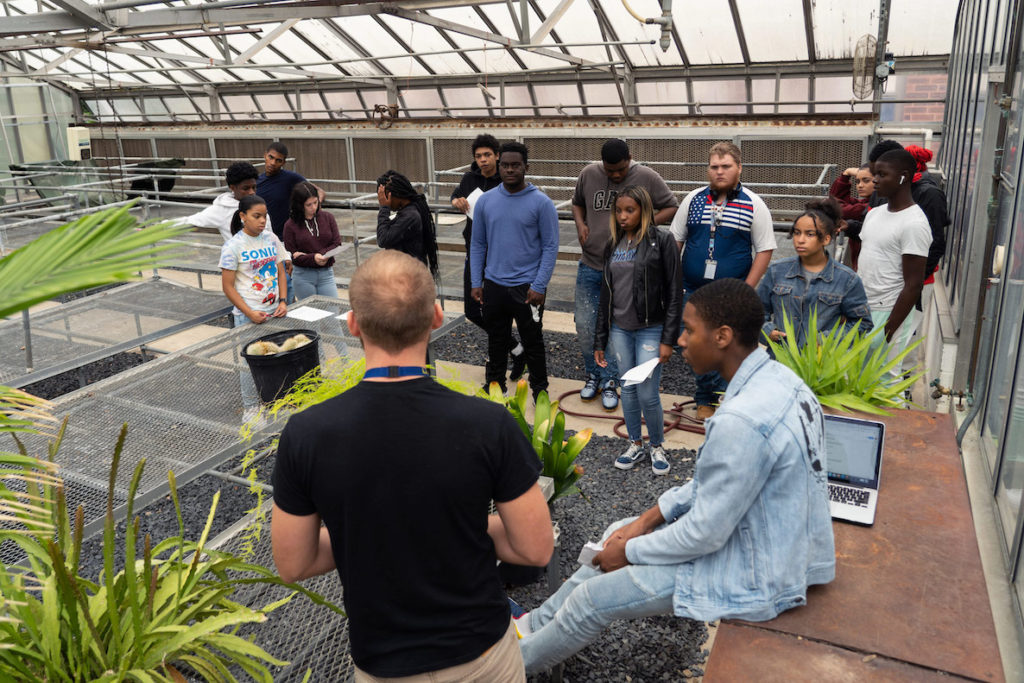
“Yes, we need to fertilize at least once a week.” He also reminds them that the plants need extra water every Saturday to help survive the weekend. “We also need to monitor the ground for weeds,” he says.
In another classroom, another horticulture class is preparing to go outside to work on the landscaping. “What we do here, is we fix up our campus and keep it looking neat and nice,” says junior Axae Marrero.
“There’s one hundred percent attendance in this class,” says their instructor, Garth Schuler. “They were out there yesterday working in 90-degree heat. They’re just excited to be here.”
This sort of intensive hands-on study is the norm at W.B. Saul, a magnet school where students major in either animal science, horticulture, food science or natural resource management. On the 130-acre campus at Saul—the nation’s largest agricultural high school—urban farming is the backbone of the curriculum. “Urban farming and Saul go so well together,” says principal Alexa Dunn. “Philadelphia is such a rich city for us to explore what urban farming means.”
“Urban farming and Saul go so well together,” says principal Alexa Dunn. “Philadelphia is such a rich city for us to explore what urban farming means.”
Urban farming has become a familiar buzzword in Philadelphia, where there are estimated to be 470 farms. Too many areas of the city are still food deserts, with little access to affordable fruits and vegetables. Urban farming is one way to reverse this. It’s becoming such an important issue that, back in April, the city hired its first farm czar, Ashley Richards, to create an urban agriculture master plan.
Yet W.B. Saul has been around well before the contemporary concept of urban farming emerged. Opening in 1943, as the Wissahickon Farm School, the school existed as a quiet, under-the-radar corner of the city’s public school system. That began to change two years ago, when Dunn arrived as principal.
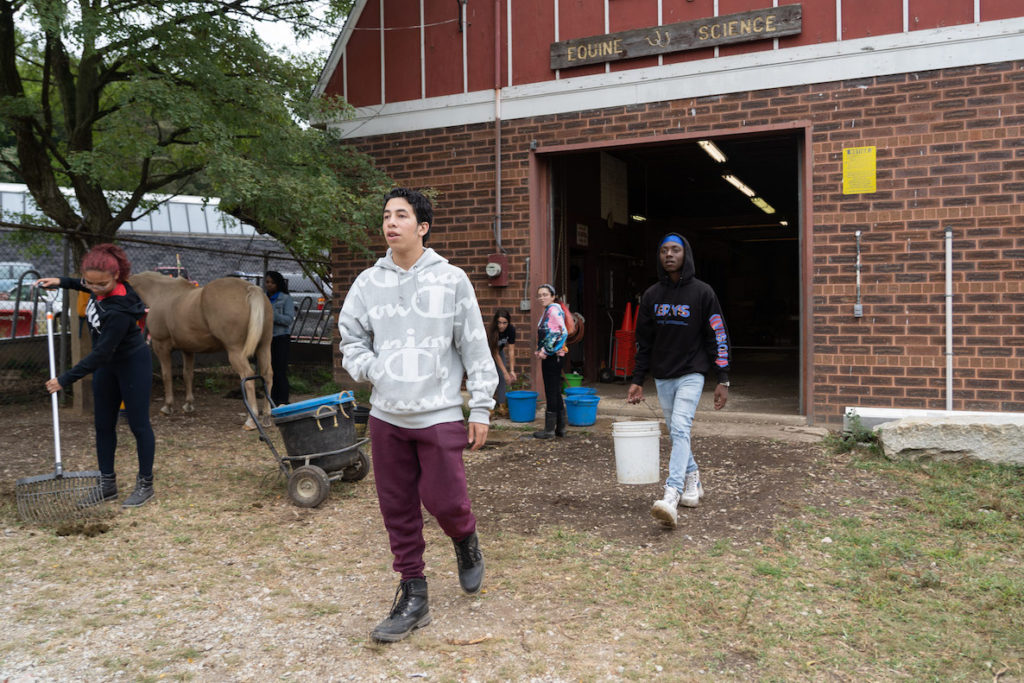
In a denim jacket and boots during our tour, Dunn appeared as the archetypal ag school principal. But in reality, she came to W.B. Saul from Science Leadership Academy in Center City, where she was a member of the founding faculty.
“I come from a background of innovation,” she says. “This is a really special place. There’s a lot of potential. But when I arrived we were ready for the next step. Our facilities are aging and we’re working to bring them into the 21st century.”
The school recently received a grant from the Cole Hamels Foundation to update the greenhouses, and also just hired a partnership coordinator to help find more industry partners. At this point, students have worked with partners like neighboring Weavers Way Farm Market and the American Society for the Prevention of Cruelty to Animals. Land O’Lakes comes every day to pick up milk from the campus dairy cows. But Dunn would like to see more.
“They were out there yesterday working in 90-degree heat,” says instructor Garth Schuler. “They’re just excited to be here.”
“We’re trying to stress career and college pathways,” Dunn says. “I would like more partnerships where our kids can be involved.”
W.B. Saul is competitive—more than 1,000 students apply each year, with only around 200 accepted. It’s also diverse, with student population that’s 60 percent female and 60 percent African American. About 65 percent to 75 percent go on to college, while others join the military or move on to a trade school (to become veterinary technicians, for examples). Others still go straight to work for one of the school’s partners.
Last year, the school was listed in U.S. News & World Report as one of Pennsylvania’s top high schools. Beyond grades, Dunn says their admissions teams look for kids “with great attendance” and “stellar behavioral record” and “self-sufficiency, independence, and maturity”— since a great deal of time is spent outside on a sprawling campus.
As if to underscore this, we passed a group of 20 students, a natural resource management class, walking along the road on their way to neighboring Wissahickon Valley Park. “There’s a fair amount of trust that exists between teachers and students,” Dunn says.
Students now spend about 90 to 180 minutes per day doing coursework in their major, while the rest of the day is spent taking the usual required high school courses, such as math and English.
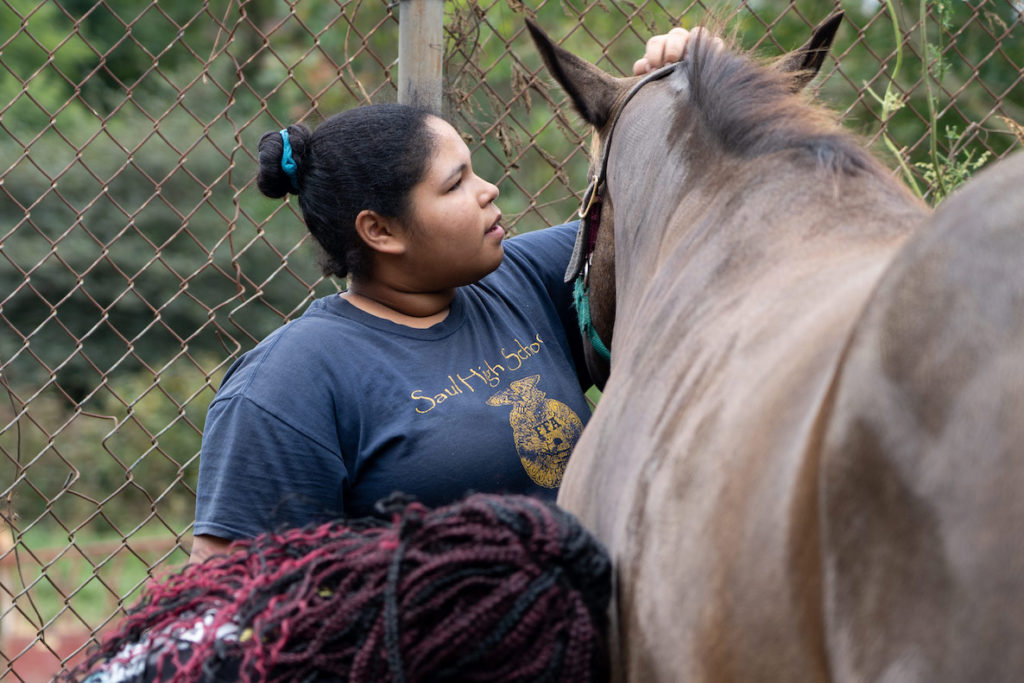
A new generation of 21st century farmers feels essential to a city where urban farming is always fragile and in need of support. About half of the city’s farms operate on formerly blighted land that the farmers don’t own or control.
Even though many farmers may have cleaned up vacant and abandoned lots themselves, they’re still technically squatters. In fact, the city’s community gardens in general are in a state of crisis with more than 200 community open spaces threatened by insecure land rights and development, according to Neighborhood Garden Trust, a land trust affiliated with the Pennsylvania Horticultural Society.
Consider what happened last year, when the long-time Kensington community farm La Finquita and its Little Farm Stand were shuttered over a property dispute with the owner of the abandoned lot where they operated. This was a true neighborhood loss, as whatever produce didn’t sell at the farm stand was donated to the Catholic Worker’s daily soup kitchen.
What feels important at W.B. Saul is a keen awareness that they’re the ones training this next generation. “Not every kid who graduates from Saul is going to move to western Pennsylvania and own a dairy farm,” Dunn says. “Most are going to live in an urban setting.”
Photo by Anthony Pezzotti


